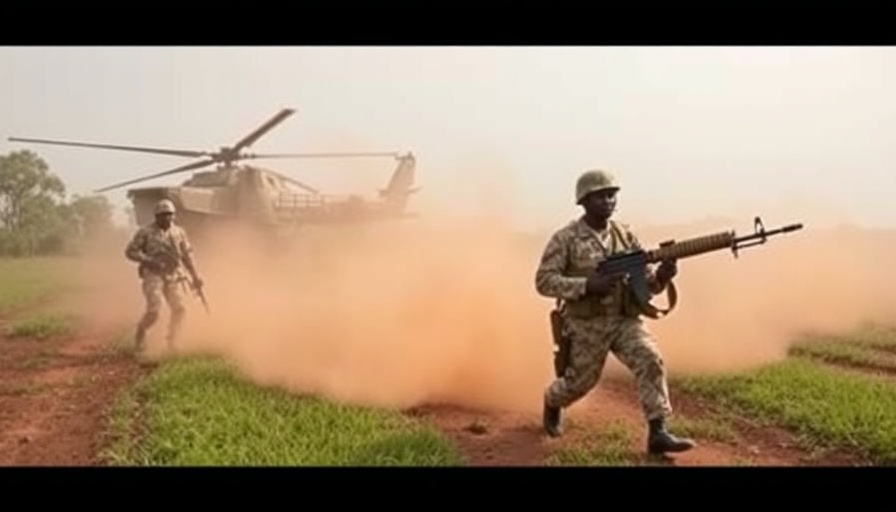
Understanding Uganda's Strategic Move
As Uganda deploys troops to Juba amidst rising tensions, the government asserts this mission as a critical protective measure for South Sudan's President Salva Kiir. Amidst concerns of escalating violence between Kiir's government and rival factions, especially those supporting First Vice President Riek Machar, Uganda's move illustrates its broader geopolitical ambitions in East Africa.
Legal Ramifications and Political Alliances
Uganda has taken legal steps to rectify any uncertainties regarding troop deployment. President Yoweri Kaguta Museveni recently convened a meeting with members of Parliament to ensure the deployment complies with Article 210 of Uganda's Constitution, which mandates parliamentary approval for any foreign troop movements. This ongoing diplomatic maneuver shows the commitment of Uganda to maintain its strategic alliance with Kiir, emphasizing that it views any attack on Kiir's government as a direct threat to its own sovereignty.
Historical Context: Revisiting Past Interventions
The current military move recalls Uganda's previous interventions in South Sudan during periods of civil unrest. Uganda first sent troops in 2013 after conflict broke out between Kiir and Machar, a move justified at the time by the Ugandan government as essential for regional stability. Just as in the past, fears of a renewed civil war and its consequent refugee crisis loom over both nations, further complicating their intertwined fates.
Analyzing the Current Situation
Reports of militia incursions in South Sudan, particularly linked with Machar’s faction, have spurred Uganda into action to stabilize Juba. Militarily, the Ugandan People's Defence Forces (UPDF) are not positioned as peacekeeping forces but as a reinforcement for Kiir. This distinction underscores the potential for Uganda to be drawn deeper into South Sudan's complex political landscape, a scenario that could escalate into a broader conflict if not carefully managed.
The Future of Uganda-South Sudan Relations
As tensions escalate, analysts suggest that the relationship between Uganda and South Sudan must adapt to the realities of an unstable region. Uganda’s military support might temporarily secure Kiir's presidency, but it also highlights the fragility of the South Sudanese government, which must answer international calls for substantial reforms and adherence to peace deals. The geopolitical landscape in East Africa may continue shifting as external pressures mount, prompting both nations to reconsider their strategies toward stability and development.
For business leaders and policymakers, monitoring these developments is vital. The outcomes of Uganda's intervention and South Sudan's internal strife will significantly influence trade dynamics and economic relations across the region. Understanding the military and political implications of these actions could also shape future collaborations and investments.
In a world increasingly hungry for geopolitical stability, it's imperative to keep abreast of such developments. Read the latest updates and analyses to understand better how these occurrences may impact economic relations across Africa.
 Add Row
Add Row  Add
Add 


 Add Row
Add Row  Add
Add 

Write A Comment